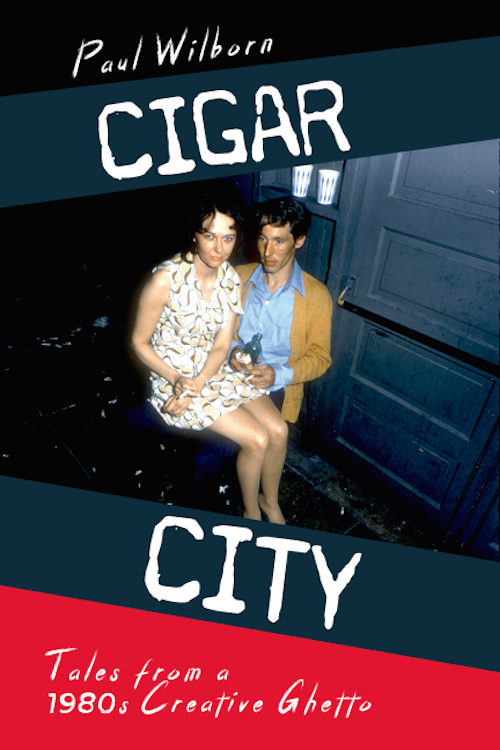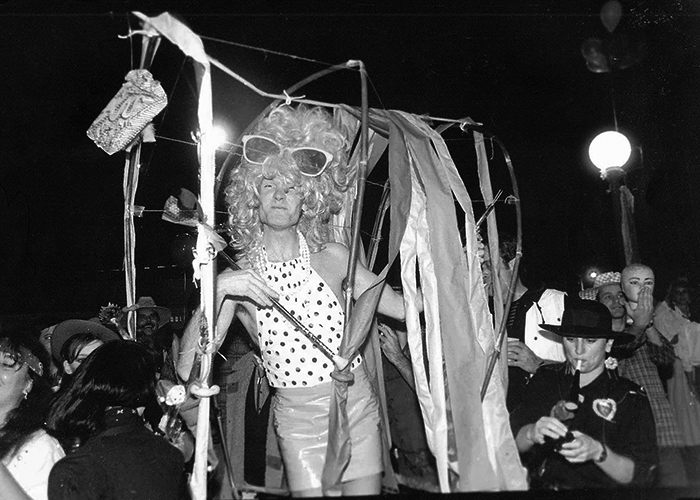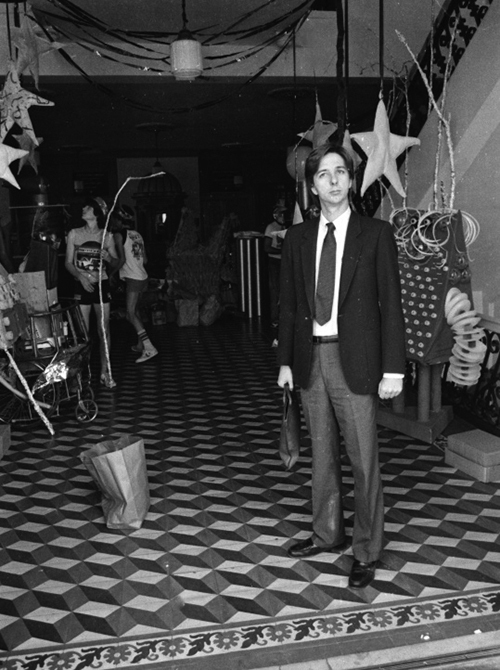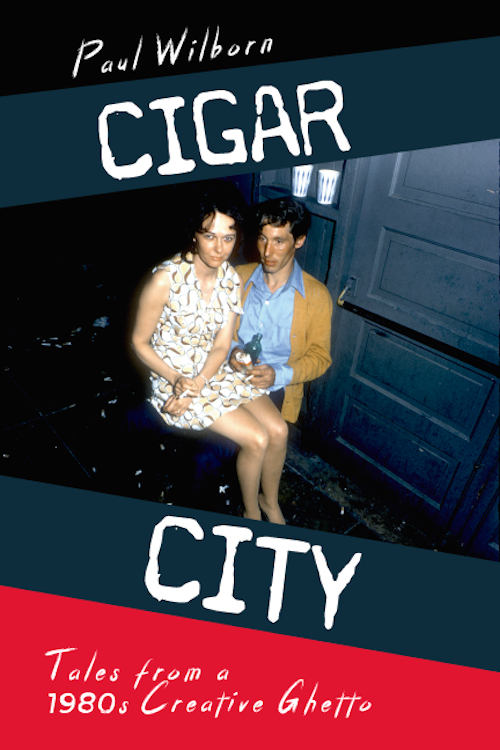Book excerpt: Cigar City: Tales From a 1980s Creative Ghetto by Paul Wilborn
The Palladium Executive Director Paul Wilborn writes a collection of linked short stories about the young artists, writers, poets, musicians and actors who inhabited Tampa’s Ybor City in the 1980s. Read an excerpt.
Excerpt from “Cigar City, Tales from a 1980s Creative Ghetto,” a collection of fictional linked short stories. Reprinted with author Paul Wilborn’s permission.
The Apprentice
Florida is normally dry in October but 1985 was different. To Katrina, the dense charcoal clouds and daylong downpours that arrived the same week Brian left were simply the world bending to her mood.
But as she walked to work her first day, the sky was crystal blue and cloudless, the air cool and lifted on a soft breeze.
Turning slowly in circles to take in the day, as words and images danced in her head, Katrina didn’t notice she had drifted off the sidewalk and into the still-quiet street.
If Ybor City hadn’t existed, she thought, Tennessee Williams might have conjured it. The old world downtown, barely a mile from Tampa’s “American” downtown, was a red brick and wrought iron Belle Reve, clinging desperately to a gilded past, while fraying at the edges.
She thought of Santiago, a man she didn’t know, offering her a job.
“I have always depended on the kindness. …”

A lone car, cruising slowly up Seventh, honked and Katrina leaped quickly onto the hexagonal block sidewalk.
Just after eight, she pushed open the heavy wooden door of La Septima Café, which took its name from the Spanish translation of Seventh Avenue. The place had plenty of Belle Reve about it, Katrina thought.
Silver shafts of light, slicing through floor-to-ceiling windows, made the room shimmer like the inside of an antique jewelry box. Katrina saw windows framed in carved wood; a fresco of a pastoral Spanish village on the plaster ceiling; and marble floors in a grey and black geometric pattern that could have been lifted from an Escher lithograph.
The morning light also revealed jagged craters in the window frames where termites had dined; the fresco was faded, like a tattoo on an aging sailor; the floor bore the scuffs of a hundred thousand footfalls.
The word that clicked into her mind was “evanescence” — to slowly fade out of sight, memory, or existence.
The restaurant was empty, wooden café chairs stacked upside down on the tables, but a harsh fluorescent glare spilled from an open door in back.
The door led into a narrow galley kitchen where a middle-aged woman was working under the buzz of a fluorescent fixture. Metal countertops ran along both walls, and an old gas stove, heavy as a floor safe, sat at the end, its white porcelain exterior stained yellow. Burners were lit under a stockpot and a large frying pan filled the room with the nutty aroma of sautéed garlic and olive oil. A single strand of hot mist escaped from the corner of the oven, rising like campfire smoke toward the pressed tin ceiling.
Katrina’s mind clicked through adjectives to describe the room: steaming, stifling, suffocating.
Yes, suffocating: to feel or cause to feel trapped and oppressed.
The woman at the counter was muscling a carving knife through a fat onion, her simple cotton dress soaked in sweat. Like the stove behind her, the woman was squat and solid. Her dress and stained apron could have been wrapping a block of wood.
She was quietly crying.
“Are you okay?” Katrina asked.
Startled, the woman turned suddenly, wiping away some tears with the back of her hand. She didn’t speak, only glared at Katrina, her hair hidden inside a black net, her narrow lips pressed together.
“I’m Katrina. The new waitress? Santiago told me to be here at 10 but I wanted to come early. He told me ……”
“My husband says a lot of things,” she said, her words coming out cold and deliberate.
“Your husband?”
“He also doesn’t say a lot of things.”
The woman’s face didn’t soften. Instead, she turned back to her chopping, the flesh of the onion giving way to her silver blade with a moist “KA-CHUNK.”
“Are you the chef? Your food … I mean, I wanted to work here because I fell in love with your food. I’ve never tasted anything like it.”
The woman turned back, fresh onion tears ringing her eyes.
“I’m a cook. Not a chef.”
Katrina flashed her best Midwestern smile.
“I’d love to know how you do what you do. If you’d teach me.”
“So you can steal mi esposo and take over my job?”
Four years of high school Spanish had been helpful since Katrina had moved to this place.
“I wouldn’t do either of those things,” Katrina said. “Besides, I’ve sworn off men,”
“Por que?”
“I don’t know … they are … beyond my control. I don’t like that.”
The woman stared for a long moment at Katrina. Her face slowly unclenched and she almost chuckled.
She picked up a large onion and held it out in her palm.
“Este cebolla is like a man. Thin skin. He thinks he’s deep, but each layer is just like the one before. And he will make you cry – absolutamente!”
She held up the big knife.
“Mi nombre es Maria. Y tu?
“Katrina.”
“So Katrina, want to chop up a few men?”
“Oh yes, please!”
Paul Wilborn, Executive Director at The Palladium in St. Petersburg and former Creative Industries Manager for the City of Tampa, is a Tampa native, a graduate of the University of South Florida, and a former newspaper reporter at The Tampa Tribune and the Tampa Bay Times. An oral history about his life can be found at the Florida Studies Center at USF. To learn more about his work, visit his website, Wilborn Writes. His book is in paperback and available for sale on Amazon and for download on Kindle.

















